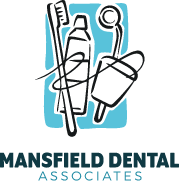Procrastinators, rejoice! You don’t have to jump up from the breakfast or dinner table and head straight for the bathroom to brush your teeth. In fact, dental experts suggest that brushing immediately after eating can actually harm your teeth, especially if your meal contained foods high in sugar, carbs, or citric acid. Today, we’re looking at why we should wait before brushing our teeth and discussing a few strategies to help you on the road to healthy teeth and gums.
It’s All in the Timing
When you eat and drink, particles of sugar and starch reach just about every surface of your mouth. Oral bacteria get to work immediately, digesting the sugars into an acidic substance. This acidic by-product, along with the acids present in the foods and drink you consumed, leach minerals from your tooth enamel, causing it to soften. After about 30 minutes, your saliva (or, specifically, the calcium and phosphate in your saliva) begins to remineralize the enamel, returning it to its normal hardness in about an hour.
If you brush your teeth before the remineralization process has occurred, you could damage to the temporarily compromised enamel. If you use a medium or hard bristled toothbrush, use toothpaste that contains a high amount of abrasives, or if you tend to brush vigorously, the damage could be compounded.
Experts suggest always waiting 30-60 minutes after you stop eating to brush your teeth. For optimal results, follow our five steps to better brushing:
- Set a timer. Set an alarm on your phone or your desktop, or just keep track of the time.
- Stop eating and drinking. Sounds silly, right? But how often do you continue to sip on your watered down Coke or nibble away on a piece of bread after you’ve supposedly finished your meal? Once the meal is done, clear away dishes, put leftovers back in your lunchbox or the fridge, and step away from the table.
- Rinse with water. If you’re thirsty after a meal, sip water. It will help remove food and drink particles and keep you hydrated.
- Chew a stick of sugar-free gum. Chewing on sugarless gum after a meal has been shown to stimulate saliva flow and decrease your risk for tooth decay. Some chewing gums, like Trident and Orbit, even contain added ingredients to stimulate remineralization and return your enamel to its normal hardness.
- When you brush, be gentle. Use a soft bristled brush, a non-abrasive toothpaste, and a gentle but thorough hand.
About Mansfield Dental Associates:
At Mansfield Dental Associates, Dr. Blair Jones and Dr. Seth Harris share the same vision and philosophy when it comes to patient care. We provide thorough, compassionate preventive and restorative dental services for patients of all ages. Contact our Mansfield, TX dentist office at 817-473-6227 to schedule your next appointment.





Recent Comments